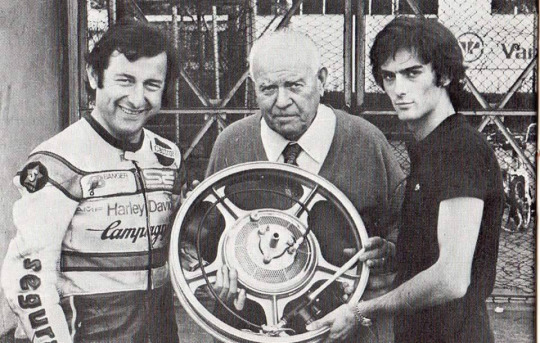#Walter Franco
Text
Abraço (atualizada)
Ainda é difícil assimilar a partida da minha mãe, mas desde quando recebi a notícia tenho a sensação de que aquele dia marcou o fim de uma vida pra mim e que outra vida começaria a partir dali. Outra vida que, por enquanto, ainda não tá formatada, existe mais recolhendo os cacos e fazendo o possível. Mas é outra vida.
Outro dia, minha irmã postou algo sobre o luto que me identifiquei muito. Ela…

View On WordPress
#Amazon Music#Anelis Assumpção#Caetano Veloso#Cartola#Dani Black#Deezer#Enigma#Gilberto Gil#Gonzaguinha#Joan Baez#John Lennon#Luiz Caldas#Marisa Monte#Milton Nascimento#Moby#Nando Reis#Secos & Molhados#Spotify#The Beatles#The Lighthouse Family#The Plastic Ono Band#The Youngbloods#Tidal#Trupe Chá de Boldo#Walter Franco#YouTube Music#Zélia Duncan
0 notes
Text
Misturação
O raciocínio lento
O poço, pensamento
O olho, orifício
O passo, precipício
Eu quero que esse teto caia
Eu quero que esse afeto saia
Eu quero que esse teto caia
Eu quero que esse afeto saia já
Em vermelho natural
No rosto e no lençol
Com gosto de água e sal
Misturando o bem e o mal
Walter Franco, 1973
0 notes
Text
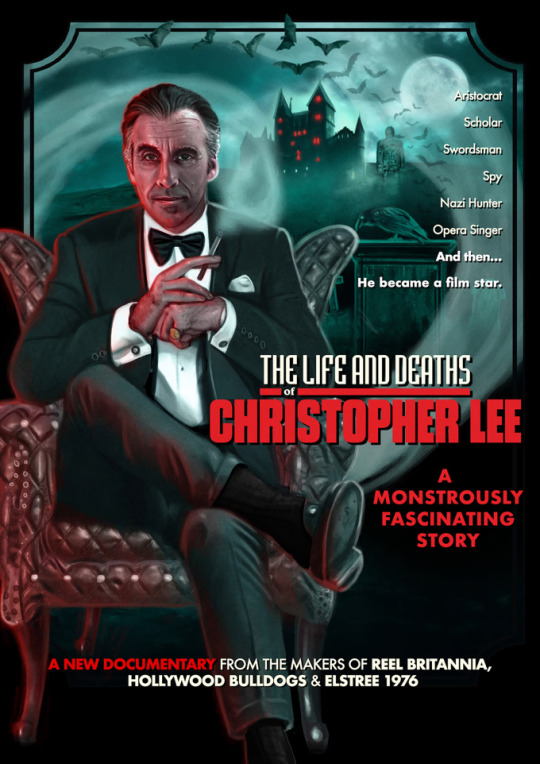
The Life and Deaths of Christopher Lee Kickstarts Deluxe Blu-ray Edition
The Life and Deaths of Christopher Lee mixes traditional documentary with a dash of fantasy. It is narrated by Christopher Lee himself... in the form of an elaborate marionette, voiced by Peter Serafinowicz. The marionette was custom designed and built by Arch Model Studios, who made all of the puppets for Wes Anderson's Fantastic Mr. Fox, Isle of Dogs and Asteroid City and Tim Burton's Frankenweenie.
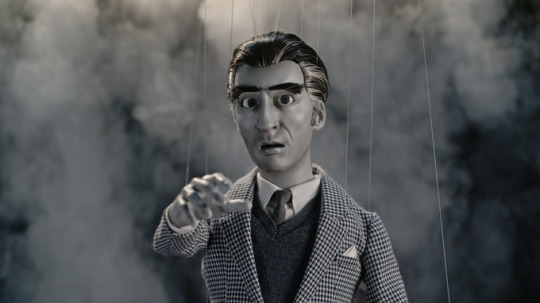
The film combines new, exclusive interviews with filmmakers, including Peter Jackson, John Landis and Joe Dante, friends and family members with animated flights of fantasy from a wide variety of artists including 2000AD's Simon Coleby, award winning stop-motion animator Astrid Goldsmith and the legendary illustrator Dave McKean who directed, scored and animated a whole chapter of the film himself.
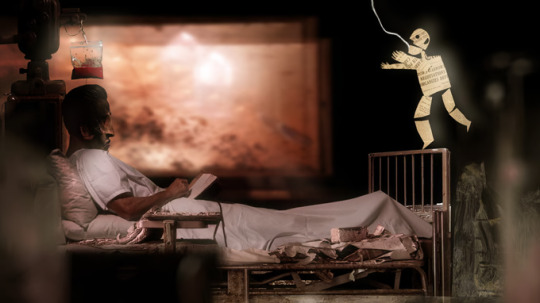
Spanning eight decades and almost three hundred films, Christopher Lee became famous for his iconic performance as Dracula. But he was so much more than just the Hammer Horror roles he is so fondly remembered for. His career took him from uncredited parts in 1950s swashbucklers with Errol Flynn, through famous performances in 007 and Star Wars films, cult hits like The Wicker Man and The Return of Captain Invincible, right up to a lead role in cinema's biggest event - The Lord of the Rings trilogy. Along the way, he worked with everyone from Orson Welles to Mario Bava, Jess Franco, Tim Burton, Martin Scorsese and Steven Spielberg.
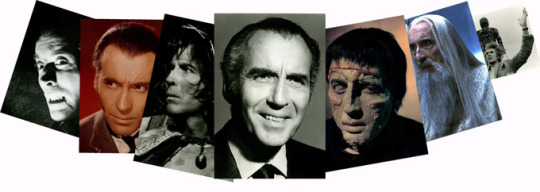
Yet his story is so much richer than just his career. Lee was born into Italian aristocracy, with a military career shrouded in secrecy and kept his private life closely guarded. Some of his ventures and adventures seem highly improbable yet, as the film reveals, he often found himself in unexpected situations - he witnessed the last ever death by guillotine, was cousins with 007 creator Ian Fleming, he met Tolkien, performed with the classic Saturday Night Live line-up, was a friend and neighbour of Boris Karloff, he was the oldest person to ever get on the Billboard music charts (with his own Heavy Metal album), was an expert knife thrower, professional opera singer and a Nazi hunter. And somehow, he also managed to appear in almost 300 films of both the highest and lowest quality imaginable.
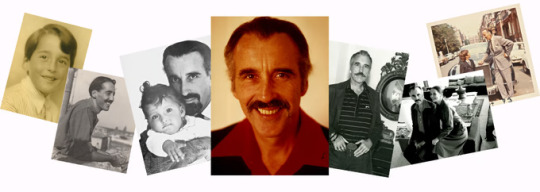
The film is finished and producers Jon Spira and Hank Starrs want to share it with you by producing a top quality Blu-Ray with great extra features and a really amazing LIMITED/NUMBERED EDITION COFFIN-SHAPED BOX SET, full of goodies, which will look killer on the shelf of any discerning cineaste. The jewel in the crown of this box-set will be a 3D 'death mask' of Christopher Lee designed and produced by Arch Model Studio exclusively for this set. They also want to host some screenings - both online and in real cinemas - so we can all experience it together and you can get to meet some of the people behind it.

Making this film has been a fascinating journey - producers excavated the British Film Institute archives where they hold Lee's personal collection of scrapbooks detailing his career in his own hand, been given access to personal photos from the family archive, they met and interviewed his closest friends and family from all over the world and we've worked with some incredible artists, puppeteers, animators, musicians and filmmakers to bring his story to the screen in the most cinematic way. Whether you're a fan of Horror, Star Wars, Lord of the Rings or just cinema history in general, we think you'll be delighted by this revealing and eclectic documentary.
Risks and challenges
The film is fully edited and ready to go. This Kickstarter is to fund the final bits of post-production and the production of a fantastic Blu-ray and deluxe collectors edition box set as we're all still committed to physical media. Please note that all illustrations of rewards are designs/prototype images. The final items might differ - we hope they'll actually be better.

#Christopher Lee#Documentary#Hammer Films#Amicus Productions#Amicus Horror#John Landis#Joe Dante#Caroline Munro#Harriet Walter#Nazi Hunter#secret agent#Dracula#Jess Franco#Mario Bava#Steven Spielberg#George Lucas#Star Wars#007
124 notes
·
View notes
Text
dracula... bastırılmış viktoryen libidonun muazzam gücüyle tıkıldığı yerden kurtularak kendisini hapseden baskıcı toplumu cezalandırması olarak görülebilir; dracula'nın viktoryen düşmanlarının ağırbaşlı hanımlarına (hem romanda hem filmde) yaptığı en dehşet verici şeylerden biri, onları haz düşkünü kılmaktır.
franco moretti - mucizevi göstergeler
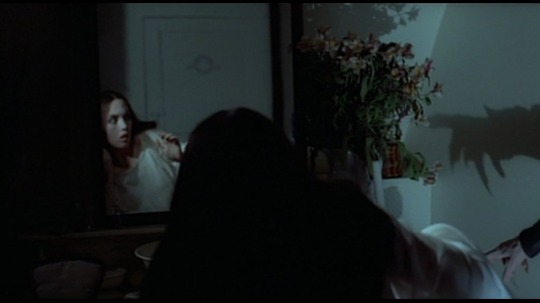
#kitap#edebiyat#blogger#felsefe#kitaplar#blog#kitap kurdu#charles bukowski#friedrich nietzsche#film movies#dracula#bram stoker#franco moretti#mucizevi göstergeler#dario fo#orhan pamuk#alain de botton#mary shelley#frankenstein#grotesk#franz kafka#walter benjamin#pasajlar#faust#horror#kült filmler#sinema#korku sineması#serol teber#sigmund freud
3 notes
·
View notes
Text
We’ve made a world of our own ✨
#pulp musicals#the brick satellite#the great moon hoax#curt mega#david zack#jaime lyn beatty#james tolbert#mariah rose faith#matt dahan#natalie llerena#amanda walter#kim whalen#tony gonzalez#Jackie Franco
34 notes
·
View notes
Text
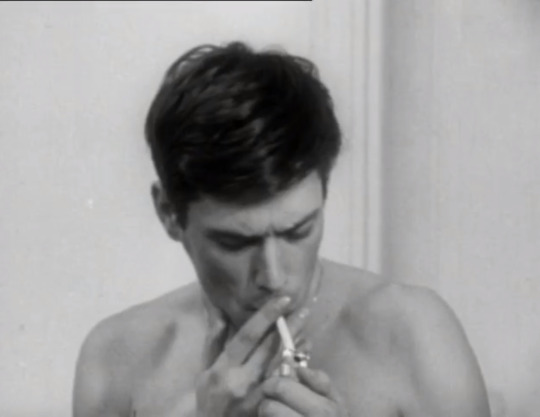
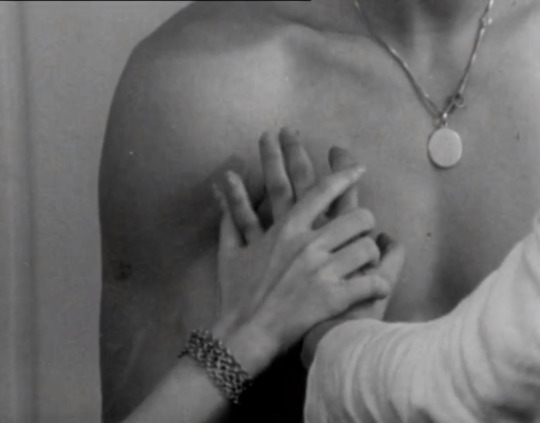
Trio (1967)
Director: Gianfranco Mingozzi
#Director: Gianfranco Mingozzi.#Luciano Bartoli#Maurizio Bonuglia#Luigi Casellato#Antonio Chignine#Cyrus Elias#Piera Degli Esposti#Nico Fidenco#Marisa Galvan#Wolfgang Hillinger#Margarita Puratich#Janet Smith#Walter Vezza#Mariella Zanetti.#Cinematographer: Ugo Piccone.#Composer: Franco Potenza.#trio 1967#italian films#italian movies#film stills#film italiani#movies watched
6 notes
·
View notes
Text


Patrick Djivas / PFM / The man with the computer (Fare Musica, 1984)
translation:
Patrick Djivas came to the editorial board of Fare Musica to tell us stories old and new about the Premiata, the band, now almost of age, that continues to represent the only reliable attempt at the internationalization of Italian rock. Then things went a bit wrong, but Patrick will tell us about that in the interview. The only note that I think is right to put before the live dialogue concerns the setting in which PFM wants its work to be interpreted today. Much water has passed under the bridge, many mistakes have been made and a lot of experience has been accumulated. The musicians in question experience these past events in the light of new awareness, which translates into the introduction of an unprecedented language within the band’s philosophy. Patrick insisted on speaking of programming, organization, planning, division and specialization of tasks, of taking responsibility for his role and for his eventual near future.
Program: to build the relaunch of a group on solid foundations that technically, and from experience, has little to envy to anyone. Work on everything with order, the means, and clear ideas. Revitalize an enthusiasm that the last few years had undoubtedly consumed a little.
Djivas seems to me to have taken the helm of this relaunch operation on the basis of his own undoubted managerial ability. He is a man who manages to combine his enormous skills as a musician with a clear and lucid vision of mechanisms that govern today's music business, knowing its progress and being able to interpret its meaning. He has a rational as well as passionate personality, a mind capable of synthesizing organizational needs, production purposes, and ways of developing group work. Flanked by the effervescence of the public man - Di Cioccio and the artistic sensibility of Mussida, he can count on a work team with all the credentials.
PFM therefore makes an attempt, which is not a bluff, but that has, conversely, great cards to play. Nothing is certain, but starting from this basis it can be assumed that the future of this historical nucleus can again be filled with significance. And, as a natural consequence, of success. Certainly they are musicians that few can teach anything.
Talking about all this, and much more, we sat around a table, with the company of Fernando Fera and an Olivetti M10 from which Djivas never separates, like any good self-respecting manager.
You are good friends with Leo Fender…
Yes. He built for me his first fretless bass…he had never done any before. It was a Music Man.
PFM? PFM! arrives after a long period of silence for the Premiata…
We had to get out of the vicious tour/album/promotion circle: after thirteen years it is a procedure that tires you and makes you lazy. We decided to stop and start working like a group on their first album again, with calm and tranquility. Too many times we have arrived in the studio with not even half of the material written due to time constraints. Performance closed a chapter of PFM: that of changes, of instability of the formation. Now a new one has opened, with defined personnel: it had been years since PFM had made two consecutive records with the same lineup.
Are you all full members of the group now?
Yes. Walter Calloni and Lucio Fabbri are also members of the Premiata for all intents and purposes. This situation allows us to start looking at the international market again: It is a discourse that you can only seriously face if you have a formidable internal strength; it's very, very difficult. The comings and goings of our lineup have forced us to give up this discourse.
What are the chances today of a lineup like PFM on the international scene?
They haven't changed at all. The first international attempt of PFM was certainly not exhausted by failure. It actually went great! We didn't realize it. The deal was - let's put it this way - interrupted. The Americans in the music business in recent years have always asked us: why don't you come back? An anecdote: Billy Idol’s guitarist, that we met in Riva del Garda, kept walking around us. In the end he came to the dressing room, apologizing, and declared that he has always been a PFM fan... He had seen us a lot of times in concert and he knew all the parts of me and Mussida by heart; he told us that in NY the Premiata is something that has remained over time... a myth!
Then let’s continue to talk about the international scene: how did the American story end for PFM, and why?
Naturally the thing was paralyzed due to various factors: the deadly blow came to us from that famous Roman concert we held in support of the Palestinian struggle. On that occasion Pagani gave an interview to Rolling Stone precisely on these political issues. A big article came out entitled: PFM support OLP. That same afternoon, Bill Graham, the organizer with whom we were most in contact and who, as you know, is Jewish, showed up, and several others soon after. The message was only one: PFM will never set foot in America again. In reality we still did something there, but in the meantime our internal problems were growing. People who entered and people who left the group, some who did not like the international experience too much, Mussida and Premoli with family problems. If you want to face America you must first go there to stay, concentrating with all your energy. It was a very provincial, if human, reaction. Certainly they are mistakes that we will not repeat. At the time we didn't realize the chance we had in our hands: in 14 states we were first in FM radio and the record company literally went crazy. From the outside, no one understood how at that point we could not finally explode.
At that time it all seemed due to us; also the fantastic welcome we received in places like London and Los Angeles. In Italy we were number one and every recognition seemed obvious to us. We had a superior attitude and didn't understand that the PFM effect was hitting America.
At a compositional level, you, Di Cioccio and Mussida do the lion's share on PFM? PFM!
Yes, Di Cioccio composed a lot for this album. Since singing, Franz has started playing the guitar; he knows 4 chords, but has a remarkable melodic sense. For example, take the piece Capitani coraggiosi: I had created the whole instrumental situation many years ago. It was a piece that I had written to test a system of automatic arpeggio on a keyboard that had come to me, a Jupiter 8. After a long time Di Cioccio got the melody out of it…not a beginner thing, with a nice development. Only in the beginning, the piece was oriented at a slow pace. Many pieces, as in this case, arise from subtle surgeries, cuts, sutures, joints, perhaps between ideas of different people.
You are the production manager of PFM? PFM!: Tell me about the work from this angle.
Initially, we had in mind the idea of making a very sparse record, four or five instruments and go. After the construction of the bases, several things were changed at the Castle from the design point of view of the room. In light of this novelty, and after a series of replays, we decided to start all over again. We only kept part of the drums. The new sound condition thrilled us: it is a very real sound. Usually, for example, when you listen to 120 dB levels you can't speak, you have to scream in your ears; in this case, on the other hand, you don't have to make the slightest effort; the frequencies are so separated that...it seems to be in the open air!
So you used a lot of overdubs…
Yes, because we could trust the placement in the frequency bands. Goldberg and I were able to foresee a whole series of fixes, first of writing and then of sound, which it was possible to respect perfectly during the realization phase. We hear everything we wanted, there is not the slightest overlap. It was not only a very profitable job, but also a very interesting one.
Did you work by ear or using spectrum analyzers?
Absolutely by ear. The analyzers seem like a big rip off to me. They can help you live, but in the (recording) room they only complicate your life. They only serve one thing: to keep in mind that in the realization of the bases the hole in which the voice will have to be inserted is always respected; for Franz this loophole was established around 1000. In reality there is another little secret why it can be useful to adopt the analyzer in the room. By being able to view the position of the voice, you can check that the absolute peaks of the recording are not just the voice itself. It would be a big mistake: it would mean that it is the voice that takes the level of the record forward.
Why the half speed mastering?
To remedy as much as possible to the cutting problems we have had, as well as to guarantee us a perfectly satisfactory level of quality. Tigre's stereo bass literally made the grooves dance. Thanks in this sense goes to Piero Mannucci who is passionate about the cutting of this album in a formidable way. We absolutely didn't want to miss Tigre's bass, but it cost us two days of work. By comparison, he thinks that Tigre was born in the studio, and that since Franz glimpsed the melody in the final recording, it's only been a day and a half: music, bass, lyrics.
Mussida’s arpeggio on the piece is of a virtuoso level…
It is a Chet Atkins Gibson passed through a Rockman. It is a guitar that works amazingly in the studio: in certain cases it can be confused with a keyboard for the breadth of sonority it possesses. Tigre is certainly my favorite piece, because it manages to balance the commercial side and the technical, virtuosic side. After all, this album has two different levels of reading. You can appreciate it as a listening product, or you can study the web of sounds with which it is built.
Tell me about the making of your bass parts on the album.
The decision to take care of the production of the record forced me to sacrifice the time I usually dedicate to my instrumental parts. After all, I felt tight in the role of the band's bass player. It therefore came naturally to me to conceive my bass parts much more as a producer than as a bass player. I created a very large, very deep sound that served as a support base for the other instruments. The bass is the platform on which the whole sound system of a record rests. Of course if you enter this order of ideas, you have to forget all the virtuosities and solos. I used a Music Man and an active Gibson.
For the keyboards?
I played a good part of it. We used the Yamaha DX7 a lot but the most compelling experience was the encounter with the Synclavier. It is a device through which I truly understood FM programming. Let's say that the Synclavier instructed me to work with the DX7, which proved to be an extraordinary device, with timbral abilities equal to those of the Synclavier.
To conclude: what is the role of PFM today, in the musical scene of 1985.
I think that PFM now synthesizes a concept of exchange between what experienced musicians like us can give to today's music. We do not want to miss what is happening around us, we want to acknowledge, and then add the weight of decades of professionalism.
Is Di Cioccio definitively the voice and the frontman of PFM?
Yes, we needed a character like that. He has to be. Both from the point of view of connection with the public and as a point of reference for the musicians on stage. A singer who, like Franz, is at the service of the group. Franz started out as a histrion, clearly he is not a natural singer, but thanks to the work he is doing, the results are beginning to be felt. It was a joint decision that consciously forced us into a period of adjustment. Looking for a singer abroad would have meant inserting a new character in a central role in a group that has a great history. It is clear that the position of the newcomer in a group does not carry the same weight as that of an elder; if the singer is in this position, it can be a big problem. We didn't want to take this risk.
Concerts?
We will start with a tour in the major cities, playing in small clubs. It is a good habit of American stars to tackle small clubs from time to time. Four lights and two hours of music, perhaps with two outings. Like Zappa or the Stones periodically returning to the Roxy, we want to rediscover the pleasure of playing at the Piper. Then will come the regular tour in the theaters and sports arenas. The whole thing will last four months. We want to do a lot of concerts, because in order to face the international discourse again, a big break-in has to be done.
Restarting the PFM machine is complicated and expensive. We have a facility that costs 4 million a day and a technician of 6 million a month. It's a new management idea; Mamone represents the organizational side. Alongside me, Francone and Franz have created a production group, which we called Performance, within which each one of us has very definitive tasks. Franz thinks of public relations, Francone of the artistic direction and I take care of production, and of actual realization.
#patrick djivas#pfm#premiata forneria marconi#franz di cioccio#franco mussida#lucio fabbri#walter calloni#fare musica#translation#my translation#article
3 notes
·
View notes
Link
The Beltway Insider, from Haute-Lifestyle.com, a Weekly Review of The Nation's Top Stories from Inside the Beltway is Live. #janetwalker #hautelifestylecom #theentertainmeentzonecom #beltwayinsider #washingtondc #politics #bidenadministration #rapeculture #ukrainewar
#janet walker#haute-lifestyle.com#the-entertainment-zone.com#biden 2024#idaho murders#george santos#putin#ukraine#barbara walters#pele#vivenne westwood#franco harris#pope benedict xvi
1 note
·
View note
Text
Già hai dato il meglio, non strafare
Già hai dato il meglio, non strafare
«Dei molti pregiudizi che la Germania s’è vista riversare addosso negli ultimi mesi, almeno uno le è stato risparmiato: non si può dire che sia stata noiosa. I suoi osservatori, spesso cittadini dell’Europa Unita costretti a riconoscersi come suoi riluttanti sudditi, sono passati in poco tempo dal vederla schiacciare la Grecia con un’esibizione di potere talmente ottusa da non renderla più…

View On WordPress
0 notes
Note
what are some of your favorite non fiction books could be about anything i just need to read more non fiction
walter benjamin, theses on the philosophy of history
jamie berrout, essays against publishing
peter brook, reading for the plot
eduardo galeano, open veins of latin america
jules gill-peterson, histories of the transgender child
franco fortini, the dogs of the sinai
saidiya hartman, wayward lives, beautiful experiments
emily k. hobson, lavender and red: liberation and solidarity in the gay and lesbian left
ghassan kanafani, on zionist literature
amin maalouf, the crusades through arab eyes
toni morrison, playing in the dark: whiteness and the literary imagination
dominique laporte, history of shit
vincent woodard, the delectable negro: human consumption and homoeroticism in US slave culture
418 notes
·
View notes
Text
guys, i have good news for once. i've found proof of intelligent life out here in these wastelands:
my favorite excerpts:
Will, Jonathan, and Joyce Formed a Special Trio
If Eleven is the main character in Stranger Things, the Byers family is the conduit through which she flickers. Will’s disappearance in the first season spurred the Hawkins community to rush to his aid.
The tight-knit camaraderie between Will, Jonathan, and Joyce juxtaposes the stereotypical family composed of kids and teenagers. Parents and children are supposed to fight and bicker in television and other media, often to build the main conflict of the story, but the Byers family already underwent that trauma offscreen.
Lonnie Byers (Ross Partridge) makes a brief cameo in the first season, flexing his standoffish demeanor and abusive nature. It’s clear that the Byers patriarch doesn’t possess much empathy for his ex-wife or his sons. Jonathan valiantly steps into the father, husband, and big brother role, amalgamating into a combination of responsibilities that no other character on the show could dream of emulating.
Jonathan Binds the Byers Family Together
Jonathan’s multifaceted arc in the first two seasons made him one of the series’ most easily dissectable characters. Stranger Things often differentiates itself from other shows by keeping the antagonists separate from the main characters. There are no Walter White or Tony Soprano-style antiheroes in which fans must compromise one part of their moral compass to appreciate the character.
One might think this makes the series boring, but it’s the opposite. Jonathan was proof that a nearly perfect brother and son can still be fascinating to watch. After Will was found in season 1’s climax, he was taken over by the Mind Flayer in season 2. Jonathan again stood by Will’s side as his little brother felt outcasted by friends and society at large. Schnapp and Heaton’s chemistry often leads to tender, humorous exchanges like this one in which the boys remind the audience that being weird can be a human superpower in its own right.
These moments became few and far between in seasons 3 and 4. Will and Jonathan were relegated to minor supporting characters as the aforementioned new additions took center stage. Will at least gets to tag along with Mike, Dustin, Lucas, and the other younger friends. Jonathan often only appears in a few small scenes with his girlfriend Nancy (Natalia Dyer), and the writers even flirted with pushing Nancy back into Steve’s arms in the most recent season. Jonathan spent the majority of season 4 high on marijuana and frolicking around in a faux buddy-comedy routine with the one-off character Argyle (Eduardo Franco).
The decision to waste Heaton’s work from the first two seasons with a 180-degree personality change made no sense. Jonathan suddenly seemed careless, distant, and uninspired, but not in a dense way that could be unlocked by further character development. Little-to-no time was spent on him. While some fans might concur it is a necessary evil to take screen time away from older characters when expanding the world of Hawkins, it certainly transforms Stranger Things from a show about family into a show just about monsters and romances.
Jonathan’s Enhanced Role in Season 5?
Many theories point to Will being one of the critical pieces to defeating Vecna (Jamie Campbell Bower) in the fifth and final season. His connection to the Upside Down and the evils underneath the surface should open up opportunities for Jonathan to lend his ears and counseling once again. Jonathan grows on an individual level when he aids others. When locked out of his family’s life, it stunts his ability to shine as a listener and an empathizer.
Jonathan’s best scene from season 4 again features a tear-jerking moment with Will. On the cusp of coming out of the closet, Will needs Jonathan more than ever before, and his brother responds supremely to the task at hand. The poignant conversation validates that the Duffers haven’t completely forgotten how to flesh out the Byers family. When the world gets too enormous for the characters and the audience, Jonathan serves as a connector to the most human elements of the series’ thematic thesis.
He may not be as funny as Steve or as neurotic as Robin, but Jonathan symbolizes the good in all of us. In a show shrouded in darkness, Jonathan’s presence will be instrumental to forming a satisfying, optimistic conclusion in Hawkins, Indiana.
#st#stranger things#jonathan byers#if everyone and the duffers would listen to what me and my fellow jonathan warriors have been preaching and praying and saying#reading jonathan appreciation is like getting injected directly in the heart with adrenaline it makes me feel like a sports fan whose team#just won and now must destroy a city over it . or whatever
165 notes
·
View notes
Text
Opera on YouTube 5
Nabucco
Teatro alla Scala, 1987 (Renato Bruson, Ghena Dimitrova; conducted by Riccardo Muti; no subtitles)
Teatro di San Carlo, 1997 (Renato Bruson, Lauren Flanigan; conducted by Paolo Carognani; no subtitles)
Ankara State Opera, 2006 (Eralp Kıyıcı, Nilgün Akkerman; conducted by Sunay Muratov; no subtitles)
St. Margarethen Opera Festival, 2007 (Igor Morosow, Gabriella Morigi; conducted by Ernst Märzendorfer; English subtitles)
Rome Opera, 2011 (Leo Nucci, Csilla Boross; conducted by Riccardo Muti; English and German subtitles)
Teatro Comunale di Bologna, 2013 (Vladimir Stoyanov, Anna Pirozzi; conducted by Michele Mariotti; Italian subtitles)
Rome Opera, 2013 (Luca Salsi, Tatiana Serjan; conducted by Riccardo Muti; no subtitles)
Gran Teatro Nacional, Perú, 2015 (Giuseppe Altomare, Rachele Stanisci; conducted by Fernando Valcárcel; Spanish subtitles)
Metropolitan Opera, 2017 (Plácido Domingo, Liudmyla Monastyrska; conducted by James Levine; Spanish subtitles)
Arena di Verona, 2017 (George Gagnidze, Susanna Branchini; conducted by Daniel Oren; English subtitles)
La Cenerentola (Cinderella)
Jean-Pierre Ponnelle studio film, 1981 (Frederica von Stade, Francisco Araiza, Paolo Montarsolo; conducted by Claudio Abbado; English subtitles)
Glyndebourne Festival Opera, 1983 (Kathleen Kuhlmann, Laurence Dale, Claudio Desderi; conducted by Donato Renzetti; no subtitles)
Salzburg Festival, 1988 (Ann Murray, Francisco Araiza, Walter Berry; conducted by Riccardo Chailly; English subtitles)
Tokyo Bunka Kaikan, 1991 (Lucia Valentini-Terrani, Toshiro Gorobe, Domenico Trimarchi; conducted by Antonello Allemandi; Japanese subtitles) – Act I, Act II
Houston Grand Opera, 1995 (Cecilia Bartoli, Raúl Giménez, Enzo Dara; conducted by Bruno Campanella; no subtitles)
Rossini Opera Festival, 2000 (Sonia Ganassi, Juan Diego Flórez, Bruno Praticó; conducted by Carlo Rizzi; Italian subtitles)
Gran Teatre del Liceu, 2008 (Joyce DiDonato, Juan Diego Flórez, Bruno de Simone; conducted by Patrick Summers; German subtitles)
Romeo Opera, 2015 (Serena Malfi, Juan Francisco Gatell, Alessandro Corbelli; conducted by Alejo Pérez; Italian and English subtitles)
Lille Opera, 2016 (Emily Fons, Taylor Stayton, Renato Girolami; conducted by Yves Parmentier; English subtitles)
Boboli Gardens, Florence, 2020 (Svetlina Stoyanova, Josh Lovell, Daniel Miroslaw; conducted by Sándor Károlyi; no subtitles)
Lucia di Lammermoor
Tokyo Bunka Kaikan, 1967 (Renata Scotto, Carlo Bergonzi; conducted by Bruno Bartoletti; English subtitles)
Mario Lanfranchi film, 1971 (Anna Moffo, Lajos Kosma; conducted by Carlo Felice Cillario; English subtitles)
Bregenz Festival, 1982 (Katia Ricciarelli, José Carreras; conducted by Lamberto Gardelli; no subtitles) – Part I, Part II
Opera Australia, 1986 (Joan Sutherland, Richard Greager; conducted by Richard Bonynge; English subtitles)
Teatro Carlo Felice, 2003 (Stefania Bonfadelli, Marcelo Álvarez; conducted by Patrick Fournillier; Japanese subtitles)
San Francisco Opera, 2009 (Natalie Dessay, Giuseppe Filianoti; conducted by Jean-Yves Ossonce; English subtitles)
Amarillo Opera, 2013 (Hanan Alattar, Eric Barry; conducted by Michael Ching; English subtitles)
Gran Teatre del Liceu, 2015 (Elena Mosuc, Juan Diego Flórez; conducted by Marco Armiliato; French subtitles)
Teatro Real de Madrid, 2018 (Lisette Oropesa, Javier Camerana; conducted by Daniel Oren; English subtitles)
Vienna State Opera, 2022 (Lisette Oropesa, Benjamin Bernheim; conducted by Evelino Pidó; English subtitles)
Il Trovatore
Claudio Fino studio film, 1957 (Mario del Monaco, Leyla Gencer, Fedora Barbieri, Ettore Bastianini; conducted by Fernando Previtali; English subtitles)
Wolfgang Nagel studio film, 1975 (Franco Bonisolli, Raina Kabaivanska, Viorica Cortez, Giorgio Zancanaro; conducted by Bruno Bartoletti; Japanese subtitles)
Vienna State Opera, 1978 (Plácido Domingo, Raina Kabaivanska, Fiorenza Cossotto, Piero Cappuccilli; conducted by Herbert von Karajan; no subtitles)
Opera Australia, 1983 (Kenneth Collins, Joan Sutherland, Lauris Elms, Jonathan Summers; conducted by Richard Bonynge, English subtitles)
Metropolitan Opera, 1988 (Luciano Pavarotti, Eva Marton, Dolora Zajick, Sherrill Milnes; conducted by James Levine; no subtitles)
Bavarian State Opera, 2013 (Jonas Kaufmann, Anja Harteros, Elena Manistinta, Alexey Markov; conducted by Paolo Carignani; English subtitles)
Temporada Lirica a Coruña, 2015 (Gregory Kunde, Angela Meade, Marianne Cornetti, Juan Jesús Rodriguez; conducted by Keri-Lynn Wilson; no subtitles)
Opéra Royal de Wallonie-Liége, 2018 (Fabio Sartori, Yolanda Auyanet, Violeta Urmana, Mario Cassi; conducted by Daniel Oren; French subtitles)
Arena di Verona, 2019 (Yusif Eyvazov, Anna Netrebko, Dolora Zajick, Luca Salsi; conducted by Pier Giorgio Morandi; German subtitles)
Teatro Verdi di Pisa, 2021 (Murat Karahan, Carolina López Moreno, Victória Pitts, Cesar Méndez; conducted by Marco Guidarini; no subtitles)
#opera#youtube#complete performances#nabucco#la cenerentola#lucia di lammermoor#il trovatore#giuseppe verdi#gioachino rossini#gaetano donizetti
26 notes
·
View notes
Text
Rescued: Jack wilder x reader
Yeah so im currently OBSSESED with Dave Franco, but especially his character Jack Wilder, so ig i might write for more fandoms, if you guys have any requests please do request them and i will try my best to answer them.
Jack Wilder had always been a quick thinker, but he was even quicker when it came to protecting his girlfriend, Y/n. When they found themselves face-to-face with Arthur Tressler and his son Walter, Jack didn't hesitate to step in front of Y/n.
"Leave her alone," Jack said, his voice firm and steady.
Arthur Tressler sneered at him. "You don't know what you're getting into, kid," he said. "But if you insist on playing hero, we'll be happy to oblige."
Before Jack could even react, Walter had knocked him out with a swift blow to the head. When Jack woke up, he felt that he was strapped to a chair, and Y/n was nowhere to be seen.
He struggled against his restraints, trying to get free, but it was no use. He was trapped, and there was nothing he could do to save Y/n.
And then he heard it - the sound of Y/n screaming in pain.
He closed his eyes, trying to block out the sound, but it only grew louder. He knew that he had to do something, but he was powerless to stop it.
Suddenly, he heard a loud noise, like an explosion, and the door to the room burst open. In walked Atlas, Merritt, and Lula, looking ready for a fight.
"Get them out of here," Atlas shouted, nodding towards Jack and Y/n.
Merritt and Lula quickly went to work, taking out Tressler's henchmen one by one. Meanwhile, Atlas made his way over to Jack, cutting him free from his restraints.
"Are you okay?" Atlas asked, helping Jack to his feet.
"I'm fine," Jack said, his eyes scanning the room for Y/n.
And then he saw her, lying on the floor, bruised and battered. He rushed over to her, pulling her into his arms.
"Y/n, are you okay?" he asked, his heart pounding with fear.
"I'm fine," Y/n said, her voice barely above a whisper. "Thanks to you and your friends."
Jack looked up at Atlas, Merritt, and Lula, feeling a wave of gratitude wash over him. They had risked everything to save him and Y/n, and he knew that he owed them his life.
"Thank you," he said, his voice choked with emotion.
"It's what we do," Atlas said, smiling. "We're the Four Horsemen, after all."
Together, the group made their way out of the building, their hearts still pounding with adrenaline. Jack held Y/n close, feeling her heart beating against his chest. He knew that he would do anything to protect her, even if it meant putting himself in danger.
As they walked back to their hotel room, Jack couldn't help but think about how lucky he was to have Y/n in his life. He knew that they had both been through a traumatic experience, but he was determined to be there for her every step of the way.
When they finally made it back to their room, Jack took care of Y/n's wounds, cleaning her up and wrapping her in a warm blanket. He held her close, soothing her with soft words and gentle touches.
As they drifted off to sleep, Jack held Y/n close, feeling her heart beating against his chest. He knew that he would do anything to protect her, and he felt grateful for the Four Horsemen, who had saved their lives. In that moment, with Y/n safe in his arms, he knew that he had found something worth fighting for.
132 notes
·
View notes
Text

Bertolt Brecht, A Walter Benjamin, che si tolse la vita mentre fuggiva davanti a Hitler [from 'Raccolta Steffin'], in Poesie, Edited by Guido Davico Bonino, Foreword by Cesare Caes, Translations by Emilio Castellani, Roberto Fortonani, Cesare Caes, Mario Carpitella, Ruth Leiser, Franco Fortini, «Einaudi Tascabili. Letteratura» 106, Einaudi, Torino, 1992, p. 217
#graphic design#poetry#book#bertolt brecht#guido davico bonino#cesare caes#emilio castellani#roberto fortonani#mario carpitella#ruth leiser#franco fortini#einaudi tascabili#einaudi tascabili letteratura#einaudi#1930s#1940s#1990s
22 notes
·
View notes

